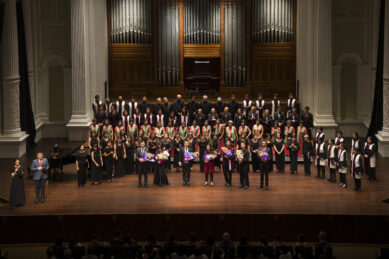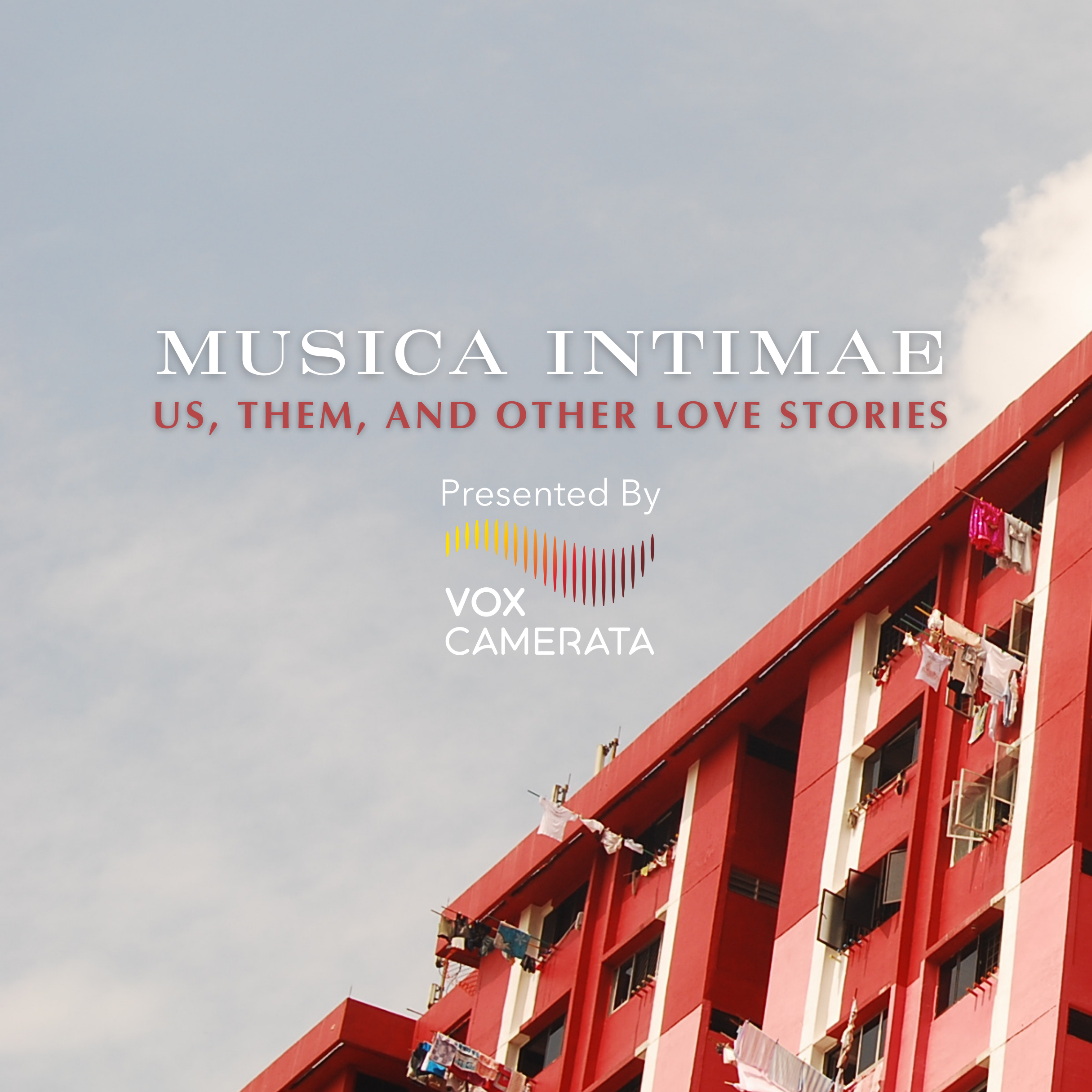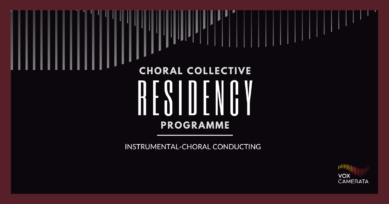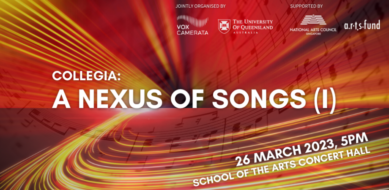Tenor and Voice teacher Jonathan Macpherson shares his views on choir concerts after the COVID-19 Pandemic with Ocean of Songs.
The Metro Philharmonic Society’s “Ocean of Songs” concert has made its way back to the concert hall. This event featured the combined efforts of four different choirs: The Metro Philharmonic Choir, National University of Singapore Society (NUSS) Choir, the newly formed Chordinate Singers and Vox Camerata’s Community Choir. The programme featured mainly songs in Mandarin, with a few exceptions in Hakka, Hainanese, Arabic, Bahasa Indonesia and English. The concert was hosted bilingually, in Mandarin and English.
Putting on a concert after such a long absence from the stage and so soon after the lifting of restrictions is both a triumphant and risky affair. The safety management measures for singing in groups were only recently lifted in March 2022. Prior to this, the measures hampered the way rehearsals were carried out. Choirs participating in this concert had to contend with the usual issues of rehearsing a community choir, namely schedule conflicts and steep musical learning curves. This is amplified for those in the older age bracket, which comes with its own set of vocal challenges physiologically.
The evening opened with a combined ensemble from the Metro Philharmonic Choir and the Chordinate Singers, who performed two works composed and arranged by conductor Acid Pang. The first song, 鹧鸪啼(Partridge’s Cries), is an arrangement of a Hainanese folk song. It began with a soprano solo, sung by Pang Hyin Hee, grew into the plaintive character of the music. The choir joined in quite inaccurately, but overall was rather pleasant to hear and maintained the same character set by the soloist. In particular, the lower and middle registers of the women sounded very rich. Their second number, 还好有你 (You are my Solace), also followed in a similar vein, keeping many of the likeable qualities heard from the first. However, here the men tended to be too forceful in their vocal attack. Acid Pang’s conducting was very straightforward and clear, but the choir in their enthusiasm in the music, did not look at him. This caused a slight disconnect between the visual of the conductor and the sound from the choir. However, Pang was unshaken and continued. To their credit, when the singers did align Pang, the music spoke well, and the ensemble’s sound was rather agreeable.
NUSS Choir next took the stage for their set, led by Adyll Hardy and accompanied on the piano by Aditya Santoso. They began their segment with Omnia Sol by Z.Randall Stroope. They hesitated to respond to Adyll’s gestures that indicated a change in tempo, but Adyll masterfully eased them back into the music. Their next piece, 故乡之恋(Love for my Hometown) by Qu Xixian, was well performed, with members showing confidence and ease in their rendition. The ensemble sang with a comfortable lyricism that enhanced their sound and augmented the big choral tuttis. The singers carried this ease and confidence over to the next song, You’ll Never Walk Alone / Climb Every Mountain by Richard Rodgers – of Rodgers and Hammerstein fame.
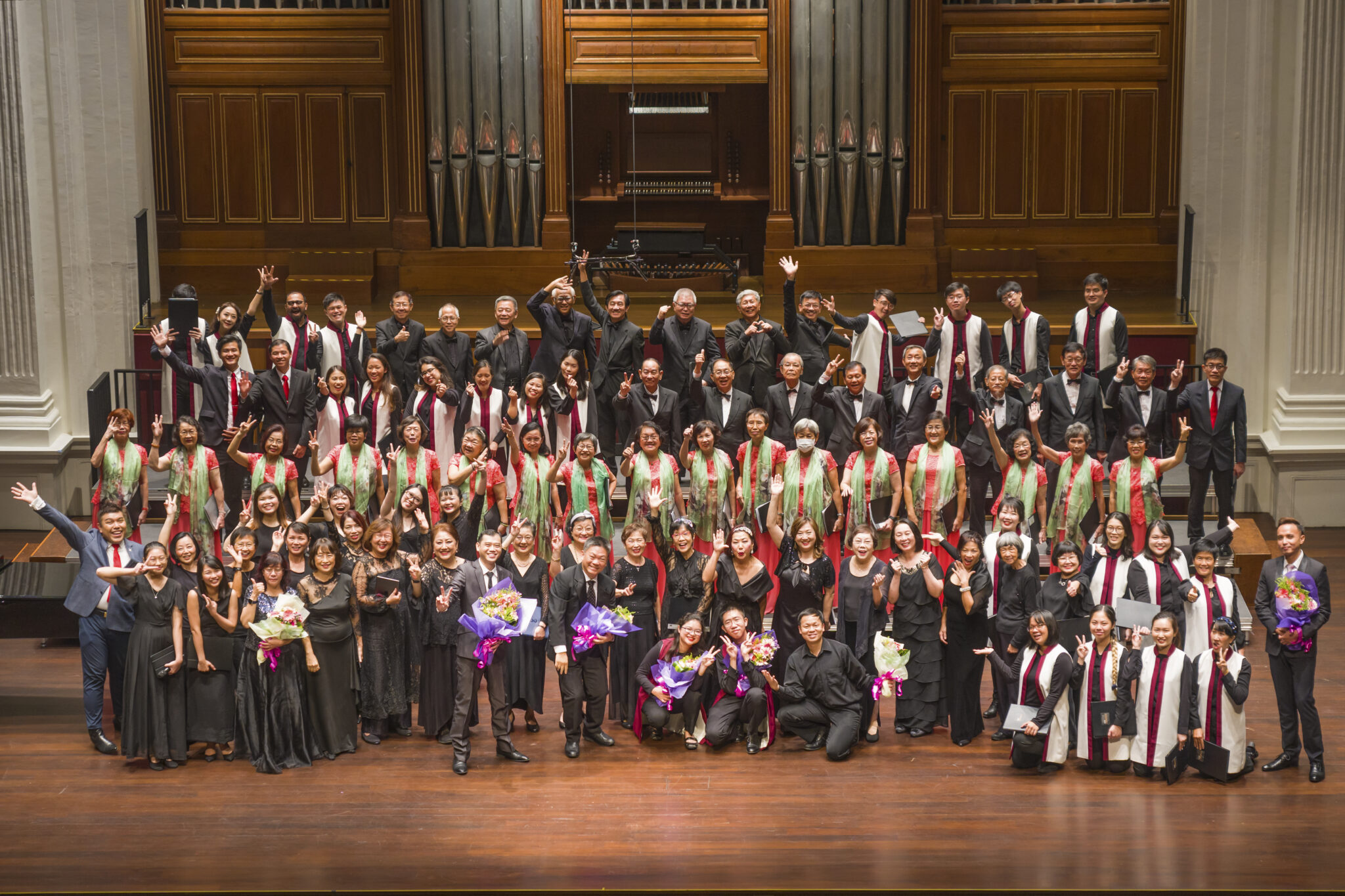
The Chordinate Singers took the stage next. A group specialising in Mandarin Pop, they formed in 2020 before the advent of the worst of the Pandemic. Acid Pang once again took the stage as conductor with Chew Seoh Yan at the piano. Their first song, 西出阳关 (Westbound from Yangguan) by Acid Pang, showcased their Barbershop like quality to their tones. The ensemble had no problems filling the hall with their sound despite their small number, although there was a slight tendency for a loss in clarity of words when they sung faster sections. There was a tentativeness on hitting the top of their ranges – audiences heard the singers’ tendency to shy away from the high notes rather than committing to singing them fully. Their next song, 大鱼 (Big Fish) by Qian Lei, was a challenge for the ensemble, as intonation issues arose amongst the women, while the men had a sudden bout of awkward singing in a few noticeable places.
The fourth set, performed by the Vox Camerata Community Choir, was perhaps some of the best-sung music in the whole concert. Two young conductors, Sun Boxi and Samantha Wee, took the helm for this portion of the concert. Under Sun’s baton, the ensemble performed Fabian Obispo’s Soleram, and Zechariah Goh’s 落水天 (Lok Sui Ten/Rainy Day). The choir’s warm and beautiful tone was well received, the full and rich harmonies of the two pieces being fully realised by the choir’s wonderful musicianship and superb singing. Sun kept a rather tight leash on the choir in terms of determining the tempo of the songs. His gestures mostly kept the choir in check but often lent a rather militaristic feel to the music. A few nuances in terms of phrasing were skipped over in favour of a moving tempo, which then led to a slight dissonance between the choir’s innate sense of line and Sun’s conducting. Wee conducted the next two songs, El Helwa Di arranged by Edward Torakian and Flowers of the Forest by Kenneth Tay. The choir swiftly and happily brought us through the merry wedding joys of El Helwa Di. Kenneth Tay’s Flowers of the Forest is a magnificent and beautiful piece, and the ensemble pulled it off with spectacular vocal artistry. The Alto solo, sung by Jamie Chan, was full, rich and an absolute joy to listen to. Wee’s conducting had the opposite problem in relation to her fellow co-conductor. Her lack of strict adherence to tempo caused El Helwa Di to feel slightly lethargic in some places. However, it was perfectly suited for her second piece, as the music expounded a sense of line and ease in the space of the hall.
The Metro Philharmonic Choir was up next, led by conductor Ng Eng Kee with Chew Seoh Yan again at the piano. The choir performed two songs, 祝福(Blessings) arranged by Liong Kit Yeng and 时间都去哪了(Where has the time gone) arranged by Liu Siyuan. The choir started confidently; they were very enthusiastic and musical, and they executed a myriad of dynamic contrasts that was lovely to hear. When the choir and conductor aligned, as before at the start of the concert, the singing and musical intention were clear. Although there were some issues in vocal tone, pitch accuracy and the sudden appearance of an out of place pop style glissando, the choir maintained a unity that lasted to the end of their set.
The concert ended with a combined choir singing 城里的月光(Moonlight in the City), with the audience being encouraged to sing along if they knew the words. Concerts such as theseare extremely crucial in reminding us why the word “community” in “community choir” is so important. Singing, and by extension music, is a social activity, and we would be all the poorer for it if we sang alone. The efforts of the singers in this concert, for sticking hard and fast to the community they had built even in the face of the near death of choral singing during the worst of the pandemic are to be thoroughly and strongly lauded. I look forward to their next concerts and will be eager to see how they will progress from here.
Ocean of Songs, a concert organized by The Metro Philharmonic Society and supported by Vox Camerata, took place on Saturday, 25th of June 2022 at the Victoria Concert Hall, Singapore.
